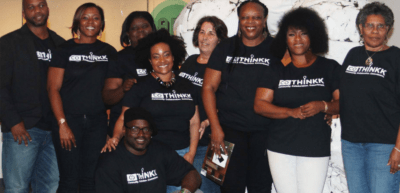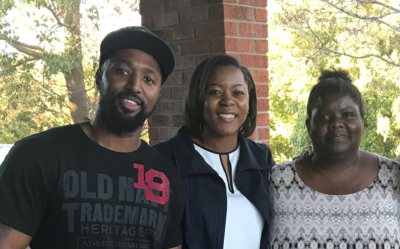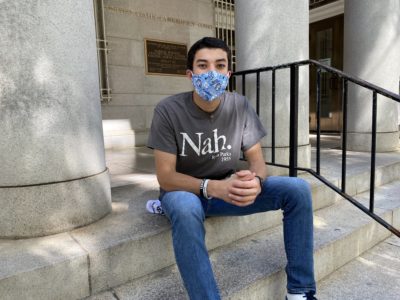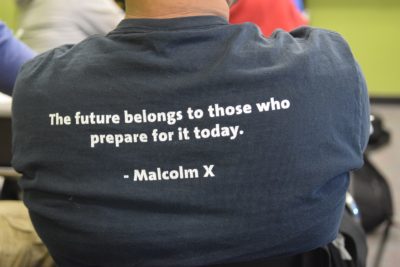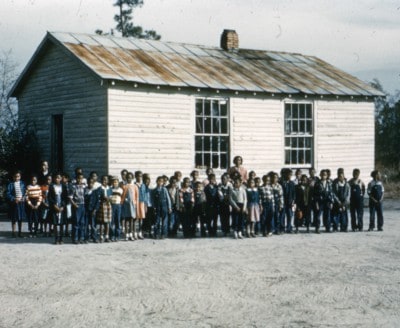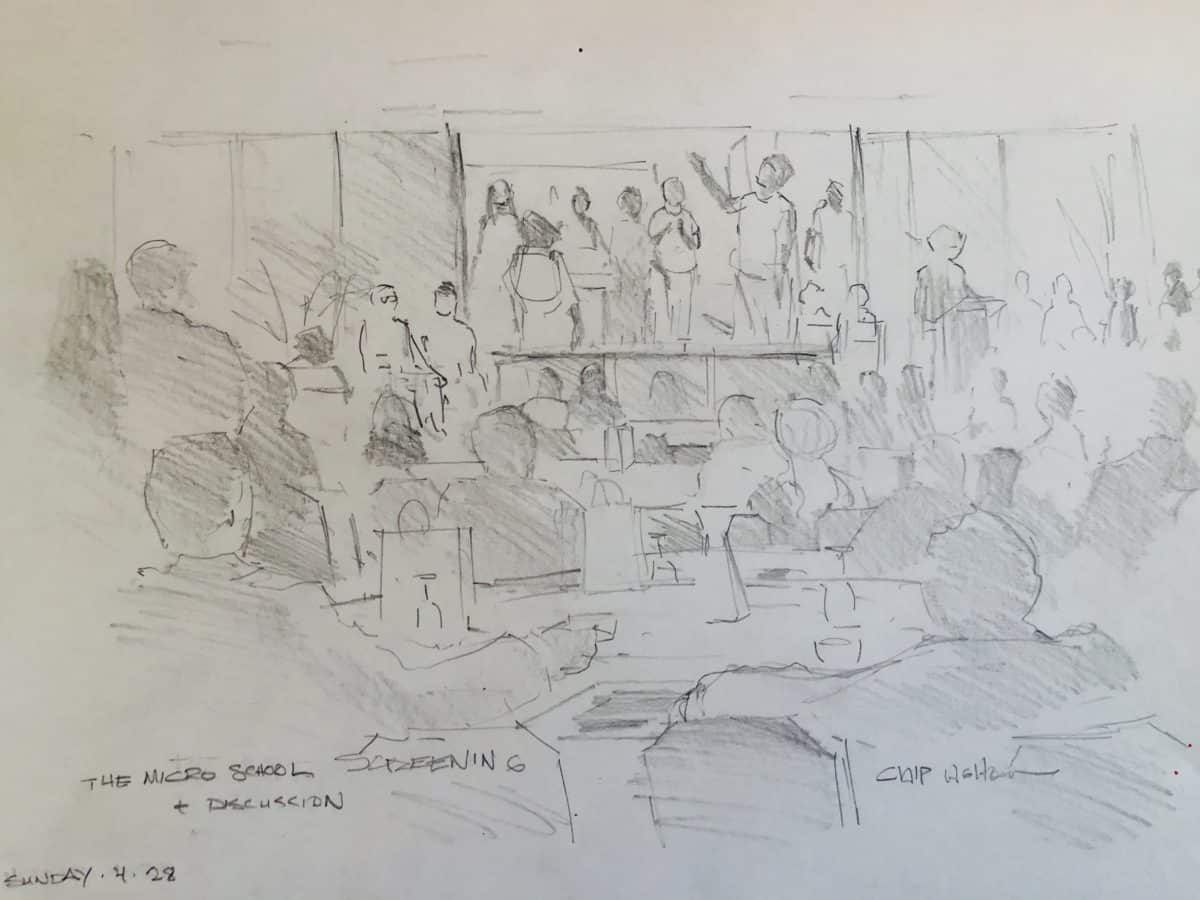

We need, want, and wish for our work on equity to speak for itself.
But we live in a system that perpetuates structural racism. So it is time to rededicate ourselves to doing “the work.”
If you don’t know Tracey Greene-Washington, meet her. Tracey is on our executive committee, and I woke up early on Monday, June 1, 2020 to her asking, “How are you going to do ‘the work?’” In the early days of EdNC, Tracey helped us craft our working statement on equity:
Being in healthy, positive, and equitable relationships with residents, leaders, organizations, and communities is critical for impactful partnerships and to support systems level change. It requires hard conversations about difficult issues, creation of intentional space, interrupting false narratives, choosing to not be complicit in issues or practices that perpetuate inequities, good intent without a hidden agenda, and the resistance to render individuals invisible or villains when issues get uncomfortable and hard.
The EdNC team had worked over the weekend on a package of articles we hoped would begin to make meaning of this moment for our readers — one about a student leading the protests, another from a principal writing to our white audience, and my call for anti-racist, trauma-informed communities with agile and inclusive systems where there is regard for all human life.
That Monday morning, we knew we could not proceed with business as usual, so both with our executive committee and our team, we stopped. Our societal sense of urgency serves to perpetuate structural racism.
We stopped. We talked. We changed our course.
Last week, we decided to hold board meetings each Friday of the month to talk about racial equity and education and EdNC’s role; COVID-19 and systems change and EdNC’s role; how EdNC will align our team, our resources, and our scope of work in fiscal year 2020-21; and all of the other issues that will bubble up.
Over the past weekend, we iterated a structure lifted up in Tracey’s work with CoTHINKK to guide our work on racial equity through four dimensions moving forward week by week.
Intrapersonal development
This is the “I” work. It is the hard work we all have to do personally and professionally. This dimension is about our people, the EdNC team.
Knowing that our people need to be physically and mentally healthy to sustain this work, we have recommitted to supporting their wellness. To that end, EdNC will close down from July 1-12 so all of us can have some space to re-center ourselves.
I went for a walk with each of our team members last week to talk about the way forward and any specific modifications needed to support each person and their family.
We are working with our team members to help them intentionally build personal and professional strategies to cope with social isolation and to begin or continue their journey towards a more equitable world.
We are providing access to research and literature about diversity, equity, and inclusion (DEI).
We have retained an equity coach for one-on-one, private coaching. Collective work on racial equity will follow.
Each week, we will focus on a guiding question. This week, we are assessing our proximity to diversity — from friends, to who we follow on social media, to sources.
Organizational development
This is the “we work.” This dimension is about our organization and our purpose.
We will be conducting an equity audit. We are iterating our strategy for the audit from this content analysis kit, created by the Maynard Institute for Journalism Education. EdNC’s Nation Hahn, through his work with the American Press Institute, is participating in a series of trainings with the Institute to think about how DEI can and should influence our newsroom and reporting.
We will be thinking about our pipelines: the pipeline to be on our team, the pipeline to be on our board, the pipeline to publish a perspective, the pipeline to be in our audience, and more.
We aren’t where we want to be on diversity of our team or board, and we are committed to a process to build a more equitable organization where more and more diversity is an ongoing priority.
We will explore and examine the difference between objectivity and truth seeking.
We will conduct surveys of our audience, beginning with this one: When it comes to racial equity and education, what is EdNC’s role? Let us know in the box below.
And we will be thinking about whether our expenditures align with our commitment to equity.
Community presence
This is “our walk.” This dimension is about our presence and how our work shows up in the lives of the people and the places we serve.
We will be taking a look at our equity page and resurfacing our work on equity, including the research of James Ford and the Center for Racial Equity in Education.
We are aggregating public statements on racial equity from education stakeholders.
We have retained an equity editor. Together, we are thinking about every word, every headline, every social card, and the influence on how readers perceive our stories.
We are thinking about which stories and issues get covered — and which don’t.
We are thinking about our sources and whether they are reflective of the people and communities we serve.
We are reviewing our use of AP style and instances where style guides perpetuate structural racism.
We will make mistakes. When we do, you will see us issue trust blocks on our stories as we learn how better to do this work.
To that end, during our Monday team meetings, we will intentionally hold space for reflective practice to review lessons learned and build towards best practices.
Systems change
This is “our way” forward. This dimension requires us to wrestle with whether our people, our purpose, and our presence are aligned toward the point of all of this work — real structural changes in our schools and our communities, in our state and across our nation.
We look forward to being in relationship with our team, our board, our funders, our audience, other media outlets, policyshapers, and policymakers as we collectively work together to build a more just world across all of the lines of difference.
We lift up Tracey, James Ford, Donnell Cannon, Derick Stephenson, Christian Friend, and Tara Kenchen who are offering us their guidance and counsel.
We will keep you posted as our learning and work continues. Please email me with your thoughts at mrash@ednc.org.


